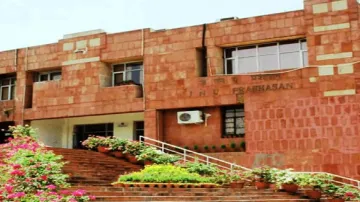Jawaharlal Nehru University (JNU) students' indefinite hunger strike entered eight day on Monday. They have been protesting against the purported unresponsive attitude of the administration over their charter of demands since August 11. Two students participating in an ongoing hunger strike on the campus were admitted to the All India Institute Of Medical Sciences (AIIMS) after falling ill but they refused treatment to continue their protest.
The Health Centre of the JNU referred the students to AIIMS, Delhi after their health deteriorated due to the hunger strike.
Fouzia Firdous Ozair, Chief Medical Officer (CMO) of JNU said, "The two students have signed a document of leave against medical advice (LAMA) and refused to get treatment. We had referred them to AIIMS after accessing their health condition."
JNU Vice-chancellor's reaction
"They (Protesters) have taken responsibility, refused treatment and signed the LAMA document. So JNU administration has informed their parents that, as adults, they have refused medical treatment," JNU Vice-chancellor Santishree D Pandit said.
What are key demands of protesting students:
- An increase in the merit-cum-means (MCM) scholarship to at least Rs 5,000
- The opening of Barak Hostel, which has remained non-operational since its inauguration in February
- The revocation of the Chief Proctor's Office (CPO) manual which penalises protests on campus with fines up to Rs 20,000.
- Their demands also include reinstatement of the Gender Sensitisation Committee Against Sexual Harassment (GSCASH)
- The withdrawal of proctorial inquiries initiated against students protesting for water and gender justice issues.
Also read: ‘Shoot Mamata Banerjee like Indira Gandhi’: Student arrested in Kolkata for post on Bengal CM

